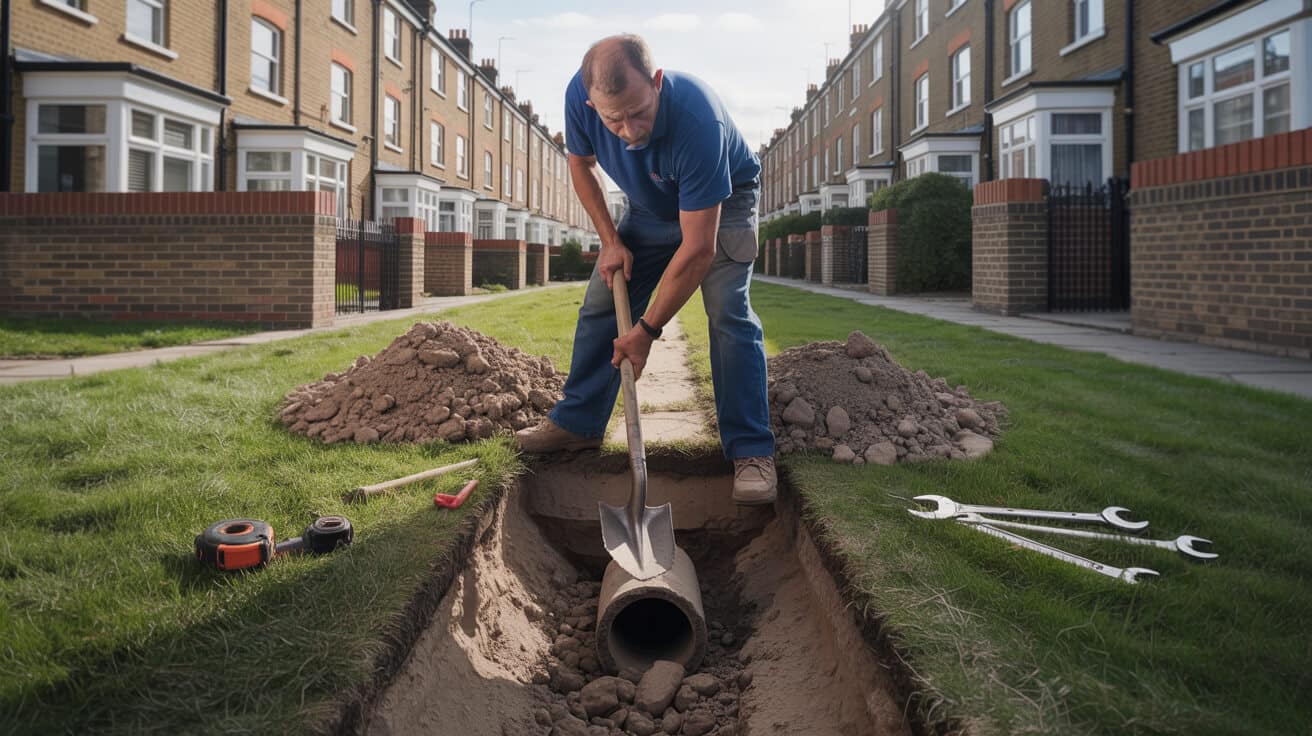 How to Choose The Right Boiler for Your Uk Home
How to Choose The Right Boiler for Your Uk Home
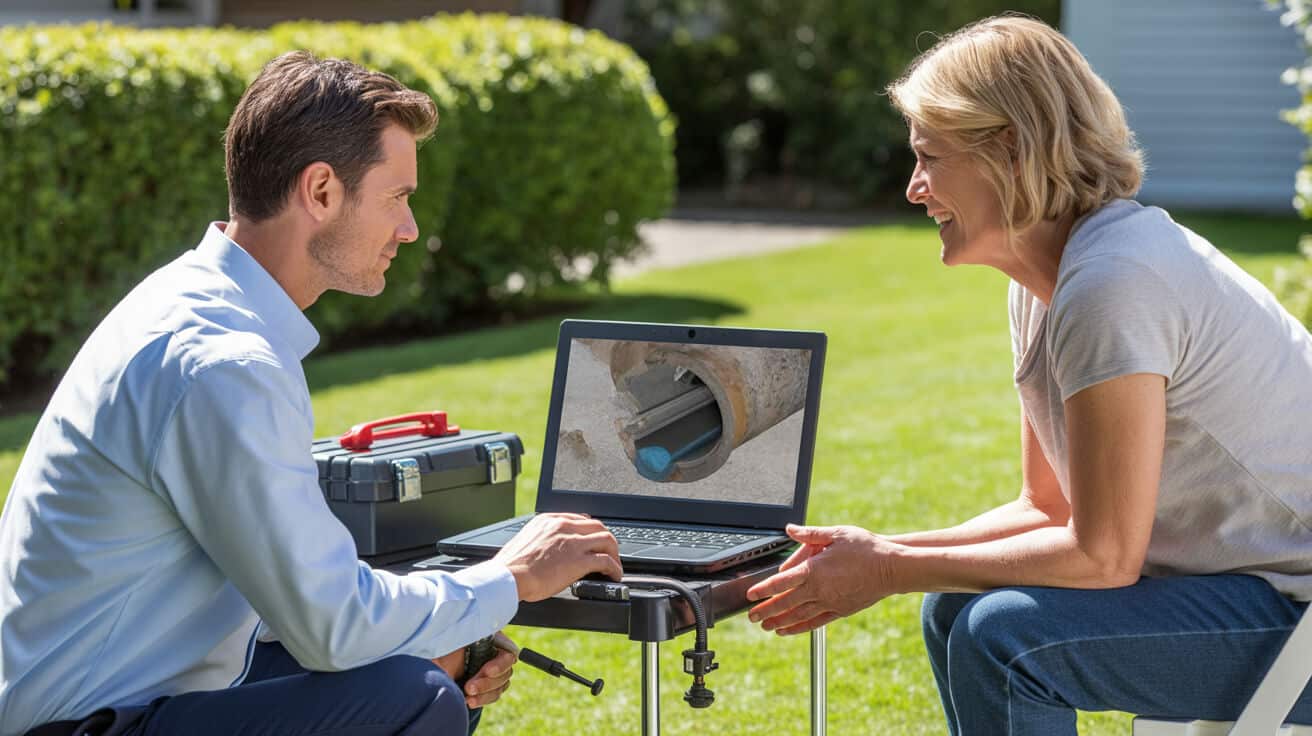
Which Boiler Is Right for Your UK Home—and Why the Advice Has Changed Forever
The UK property landscape has rewritten the rules for heating systems, and what worked “back in the day” is now a formula for wasted money, sleepless nights, or worse—non-compliance when it counts most. The old boiler swap routine (“fit what’s already there,” “combi is always cheaper,” or “just get a bigger model”) quietly drains trust, resale value, and often, your confidence when it inevitably fails at the wrong time. Your choice isn’t just about heating; it’s about creating a property that works for your real life, legal obligations, and tomorrow’s bills.
A hasty boiler choice can cost you far more than a faulty one—because by the time you realise, your hands are tied.
Heating and hot water should be invisible protectors, not sources of friction. But for property owners, asset managers or anyone dependent on squeaky-clean paperwork, a vague or copycat approach has become the real risk. Energy costs, compliance targets, and grant rules shift with almost every winter. Comfort and asset value now hinge on whether your installation works with (not against) modern requirements and building evolution. Plumbers 4U is built on one principle: if it matters to your property’s health or reputation, we don’t leave it to chance.
What Habits and Property Details Actually Decide the Right Boiler?

Boiler selection is personal—not just technical—and the “cheapest” or “same-as-before” path nearly always leaves comfort or compliance on the table. Real efficiency starts when you break out of boiler showrooms and think about how you use hot water and heat throughout a typical year—not just at midnight in January.
Real-Life Audit: From Radiators to Room Use
Counting radiators is only a part of the storey. Where do you really spend time, and when? A four-bedroom extended semi with three showers, bustling family life, and a garden studio demands a solution worlds apart from a two-bedroom city flat. If your layout spreads over floors, or if there are future plans for a loft, home office, or letting split, you’re facing risks not seen in single-bathroom flats. “Like-for-like” thinking here just narrows your options and bakes in old weaknesses.
Houses collect heating mistakes over decades—today’s shortcut becomes tomorrow’s callout.
Growth, Change, and Never Painting Yourself Into a Corner
Every family or property portfolio changes. You might renovate a kitchen, add a rental suite, or need to support wheelchair-friendly adaptations. Instal for just “the now” and you’ll find yourself boxed in—paying double for upgrades, losing grant eligibility, or discovering your boiler can’t legally connect to new controls or renewables. Good planning futureproofs more than the boiler; it protects your asset and reputation.
Heat Loss and the “Invisible” Leak in Your Budget
Entire heating debates are lost in kilowatt arguments while real savings leak away through walls, old windows, or missing loft insulation. A boiler sized for a badly-insulated house is a money pit. Fixing air leaks and upgrading insulation reduce system demand—often letting you choose a smaller, more efficient boiler with lower lifetime costs.
Table: Typical Home Profiles and Best Boiler Approaches
| Property Scenario | Recommended Boiler Path | Trap to Avoid |
|---|---|---|
| Modern flat, one bath | 24–30kW combi | Oversize = short life |
| Large family, two+ baths | System w/ cylinder | Combi: hot water lag |
| Heritage/period house | Regular/system with zoning | Lossy “swap” logic |
Every home deserves a solution built on how you use it—not what’s easiest for the installer or what “most buyers” choose this year.
Why Boiler Types Still Matter—And the Real Reason “One Size Fits All” Costs You More
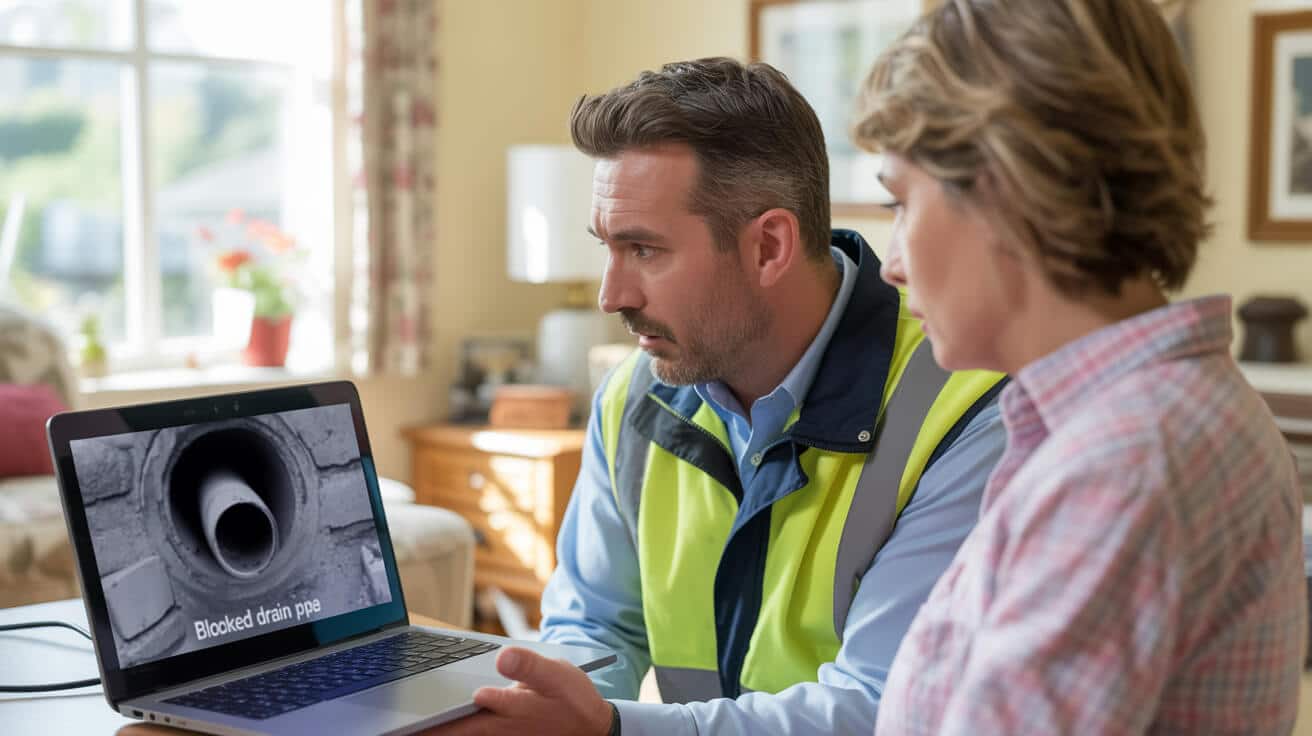
Walk into any property forum or shop, and someone will tell you, “Just fit a combi—it’s simple and space-saving.” Their incentives? Not always your future. Boiler type isn’t a relic—it’s the trigger for everything from building compliance and renewable readiness to straightforward repairs or letting upgrades.
Combi, System, or Regular: It’s About Flow, Not Fads
Combi boilers rule the roost in smaller, single-bathroom homes and city rentals. They’re compact and deliver instant hot water, but dual showers or big bath fills will reveal their limit (especially where pressure drops on older mains or pipework are present).
System boilers (with hot water cylinders) shine where there’s real daily demand—big households, home workers, or rentals with peak overlap. They link with modern controls and future upgrades, provided you pick the right cylinder type.
Regular (conventional) boilers offer a path for heritage properties or complex multi-zone retrofits. They link to cold tanks in the loft and play nicely with very old pipework, but bring extra maintenance and space requirements.
Choose a trendy option without checking your layout or pressure, and you’ll find yourself out of hot water when you need it most.
Missing the Upgrade Path Blocks Your Property’s Growth
Boilers are the heart of your system, but cylinders, controls, and even pipework all determine what you’re allowed to instal five years from now. Some combis limit you to basic heating; some system boilers and “smart-ready” cylinders mean you can easily add solar, renewables or smart thermostats later. Choose wrong and you’ll pay for a full upgrade instead of a quick add-on.
Table: When Each Boiler Wins or Fails
| Boiler Type | Stars In | Hidden Pitfalls |
|---|---|---|
| Combi | Flats/small houses | Multi-bathroom deadlock |
| System | Families/rentals | Needs airing cupboard for cylinder |
| Regular | Heritage/complex | Tanks = slow/older kit risk |
The “easy” choice may cost more when it’s your only choice left tomorrow.
Why Boiler Sizing Is Not Simple Maths—and the Risks When It’s Wrong

Bigger isn’t better, and smaller isn’t always more efficient. Over- or undersized boilers cost money, cause breakdowns, and risk legal trouble under today’s compliance regime.
Real Sizing Is Calculation, Not Guesswork
A precise boiler size means matching the power needed for your peak use, insulation levels, room volume, and water demand—on the coldest week of the year, with everyone home, all taps running. “Rules of thumb” (like 1kW per radiator or “just pick 30kW for any house”) are marketing timebombs. They miss hidden heat loss, lead to short cycling (rapid, damaging on/off cycles), and destroy energy savings.
Professional heat loss calculations and flow demand checks (required for new-builds, EPC ratings, and some grants) can adjust initial “guesses” by 15–25%. Cutting corners here shortens boiler life and raises your bills—the numbers don’t lie, but they do add up.
Oversizing is not being careful—it’s the fastest way to lose your efficiency edge, and a red flag for grant assessors.
Documenting Sizing for Warranty and Compliance
UK regs (Part L, WRAS, manufacturer warranties) increasingly require a documented rationale for the chosen model. Fail to demonstrate “proper sizing” and you can lose grant eligibility or void your warranty (WRAS, 2024). “It’s what the old one was” doesn’t count.
A real survey includes a heat-loss calc, pressure and flow testing, and a breakdown of rooms, outlets, and realistic “worst day” settings—so every pound spent pays itself back in reliability and compliance.
Are New Controls and Efficiency Upgrades Overrated—or Essential for Modern Properties?
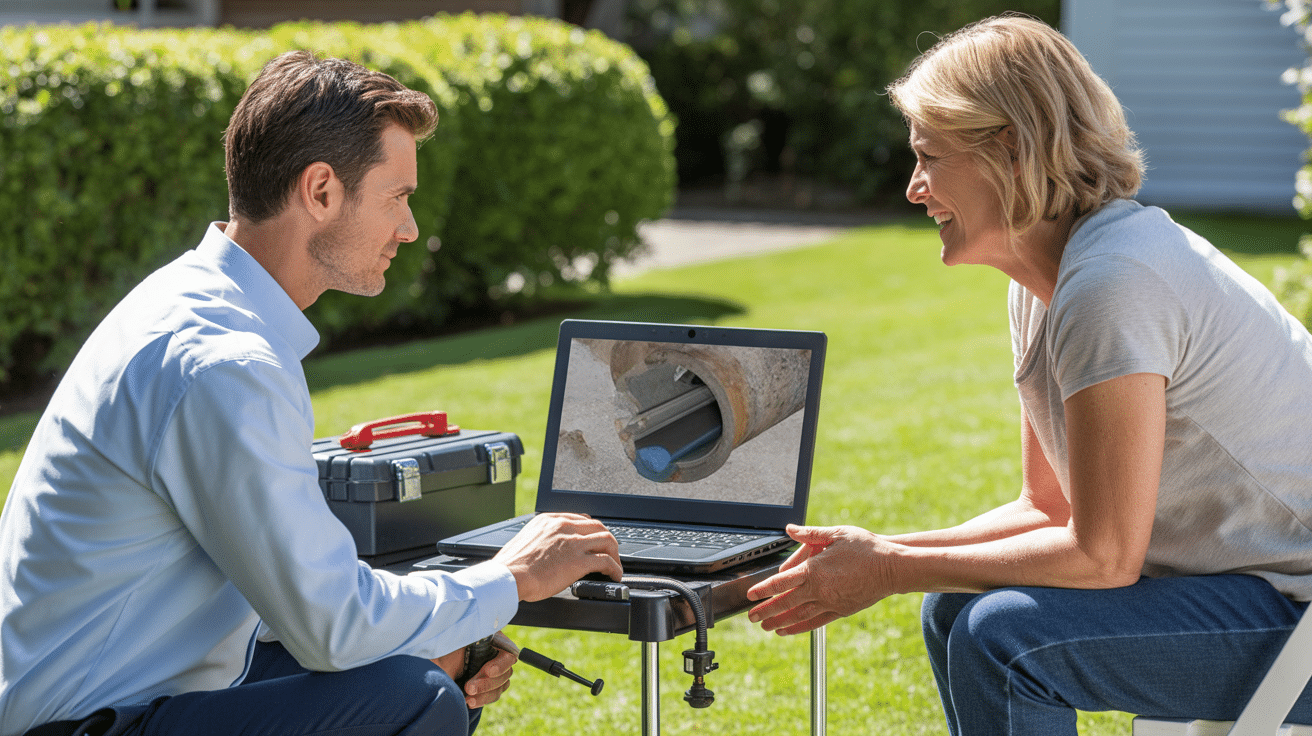
Tech evolves, and with it, baseline expectations: for tenants, buyers, and compliance inspectors alike. Controls, zoning, remote access, and OpenTherm aren’t gimmicks—they’re regulatory benchmarks and the new standard for comfort and bill management. The days of on/off dials went out with single-glazed windows.
Smart Controls and “Boiler Plus”: More Than Just Gadgets
The Government’s “Boiler Plus” policy (since April 2018) makes certain controls mandatory for new installations, especially on combis. Room-by-room zoning, learning thermostats, and remote app-control are no longer “nice to have”; they’re how top properties score better EPCs and attract top tenants or buyers. Integration with Hive, Tado, or Evohome means you keep occupants happier, and catch issues faster—no more playing heating detective or stacking tenant complaints all winter.
Why True Efficiency Isn’t Optional Anymore
All new boilers are “condensing” by law, but design quality and add-ons massively impact real-world performance. Features such as weather-compensation modules and OpenTherm compatibility automatically adjust your system for maximum savings and prevent the overshoot and cold spots that are harder to trace.
Properties with full control upgrades show average annual savings up to £160, stronger reviews, and much smoother compliance on lease or sale (Energy Saving Trust, 2024).
Your boiler no longer stands alone—controls are now the front line for comfort, compliance, and even grant access.
What Makes the Difference Between a Cheap Swap and a High-Value Installation?
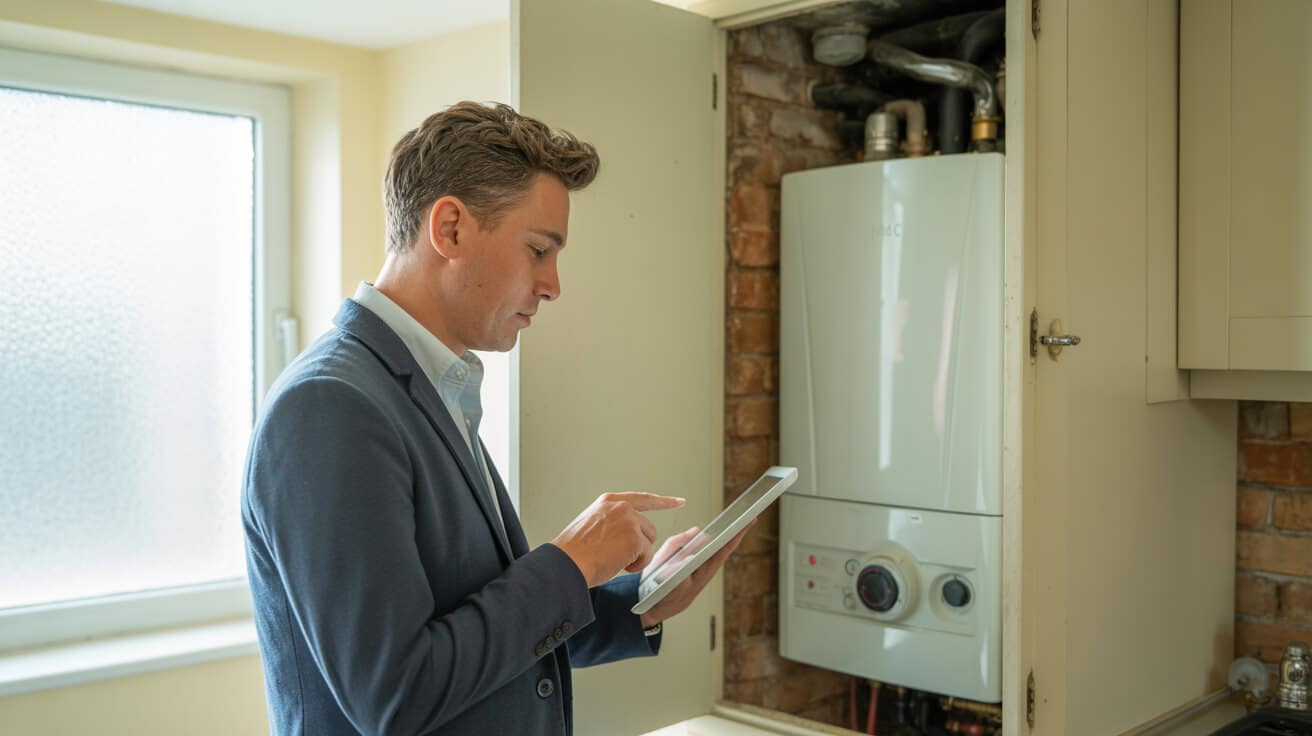
A “swap the box” job gives you the same pitfalls with a new price tag. What truly protects comfort and investment is a system-level, certified process—one that futureproofs against hidden faults, compliance headaches, and service cutouts.
Credentials and Surveys That Actually Mean Something
Engineer Credentials:
- *Gas Safe registration* is legally required for all gas works.
- *G3 certification* covers unvented hot water systems—cylinders for family homes or rentals.
- *WRAS approval* means only compliant parts and practices get near your water supply.
Role models in compliance open more doors—lettings, asset sales, and insurance all depend on certified builders and paperwork.
Survey Steps:
- Full pipe tracing and insulation check: spots pressure drops and hidden leaks
- Room-by-room asset survey: every rad, tap, and shower is mapped
- Test for flow at peak times, including showers and old taps—not just visible pipework
- Assess upgrade potential for future controls, solar, or heat pumps
- Deliver a photo log, written quote, and checklist of compliance points
- Only accept paperwork at handover—Benchmark book, gas/water certs, and user tuition
True future-proofing is shown in records and capabilities—not promises of sorting it later.
How Plumbers 4U Sets the System Apart—And Shields You from Every Pitfall

Every complaint traced back to a “cheap instal” starts with missing process and invisible shortcuts. Plumbers 4U engineers are trained and required to document, check, and hand over every part of the instal—protecting you, your property, and anyone you rely on for compliance or legal insurance.
Surveys With No Gaps—and Senior-Only Teams
Every project begins with a thorough run-through, carried out by WRAS/Gas Safe-certified, G3-qualified lead engineers. No delegation to juniors, remote video calls, or skipped steps. You get asset-by-asset analysis, flow and pressure measurements, heat-loss calcs, and a strong dialogue about your future plans.
Installation, Documentation, and Ongoing Support
You receive:
- Boiler, controls, and system fitted to the letter of Gas Safe, WRAS, Building Regs, and manufacturer guidelines—*not what’s “OK” on the day*.
- commissioning and full demonstration for every user (from owner to tenant).
- All-handed-over paperwork: Benchmark, Gas Safe, and WRAS certs, plus photo log-as-proof.
- Warranty registration, prompt reminders, and live support without endless hold music.
- Aftercare and maintenance for the life of your instal, tracked in easily accessible records—so asset managers or letting portfolios never have to guess what was done, when, or by whom.
Table: Plumbers 4U System—From Planning to Peace of Mind
| Stage | Our Process | Your Protection |
|---|---|---|
| Audit | Senior, certified | Finds risk, saves cash |
| Installation | Regulation + photo | Maximises warranty |
| Handover | All certs, user demo | Easy letting/resale |
| Aftercare | Reminders, asset log | Fewer breakdowns/issues |
The standard you enforce today is the time and money you save every year you own the property.
What Real Proof and Accountability Look Like—And Why They Matter More Than Ever
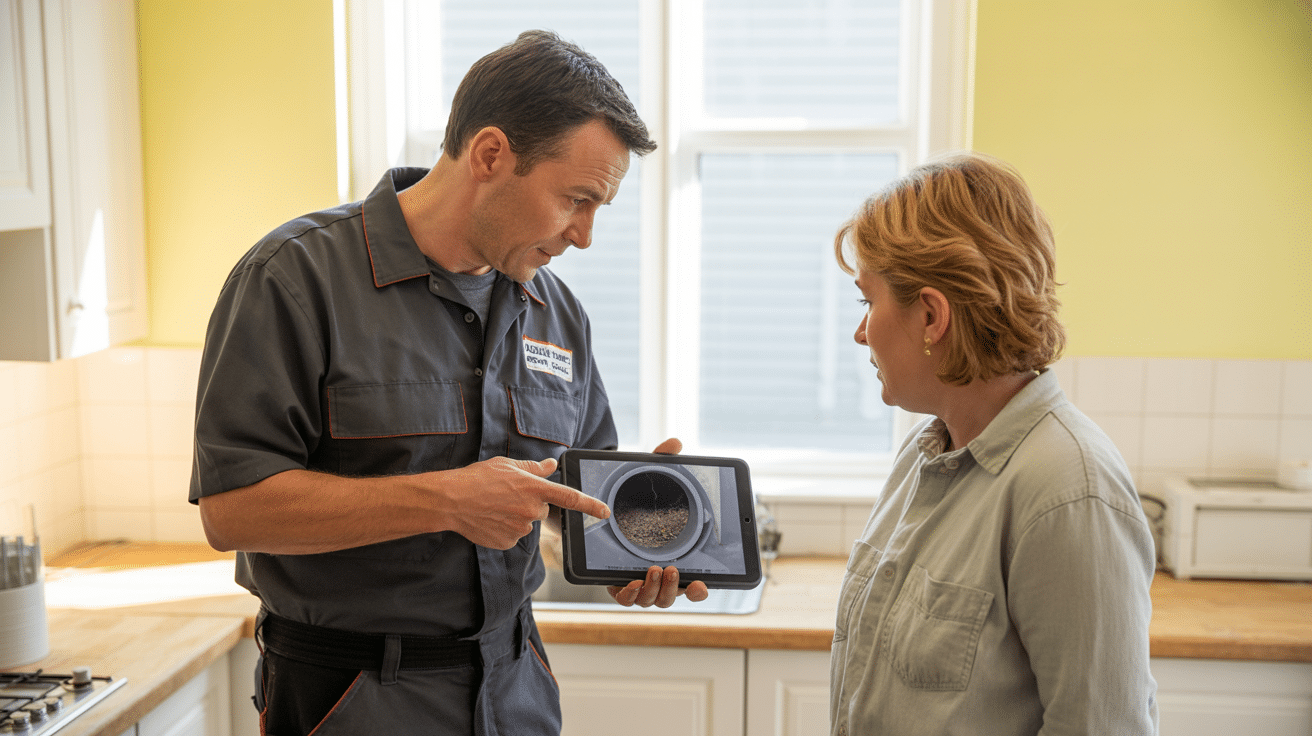
Fewer things are as expensive as “missing paperwork” or “lost credentials”—especially for landlords, letting agents, and anyone whose reputation or licencing depends on transparency. Plumbers 4U delivers bulletproof records and asset logs—reinforcing your compliance, comfort, and resale value.
Credentialed Every Step—Zero Compromise
You’re provided with:
- Gas Safe, G3, and WRAS certifications for every engineer, delivered before work begins
- All certificate numbers, entered into your asset file (matches for rapid council or insurance checks)
- Full Benchmark, WRAS, GasSafe, and photographic documentation as standard upon handover
Digital Asset Libraries That Support Every Regulator or Buyer
Every instal and service is tracked in your digital record, with before-and-after images, service logs, and credential links. Whether you own one home or 200, this is an insurance and resale tool—no more lost folders or last-minute “urgent” calls to prove who did what.
Boiler instals logged and certified in this way have up to 51% fewer faults over the first five years—saving you ongoing headaches and securing your property’s compliance or letting status (Which?, 2024).
The easiest way to gain respect and peace of mind is to have paperwork that never goes missing.
Everything You Can Expect from Plumbers 4U—From First Quote to Compliance Update
Plumbers 4U delivers:
- G3, WRAS, and Gas Safe credentials shown at the initial survey—always up front, not on demand
- Detailed, written quotes—every part, every warranty action, nothing shocking after installation day
- Photo-logged instal and service records—digitally shareable and attached to your asset or property file
- System demos and user instruction, fit for every occupant or letting situation
- Fixed-price, compliant components only—no off-brand substitutions, no “grey market” systems
- Comprehensive aftercare: timed reminders, warranty checks, and ongoing certificate tracking for as long as you need
- Digital asset files for fast re-letting, insurance claims, or property sale due diligence
When every detail is covered, your boiler becomes an invisible asset, not a risk—no last-minute worries, no compliance confusion, and no cold feet (literal or otherwise).
Ready for Zero Doubt? Make the Call—Secure Your Home’s Comfort, Value, and Compliance with Plumbers 4U
Your next heating decision is not just another property task—it’s your line of defence against unnecessary cost, comfort headaches, and stressful compliance disputes. Ignore it, and the “cheap now, pay later” cycle continues. Take it seriously and you’ll gain a system that does the silent work protecting your comfort, reputation, and asset value.
Plumbers 4U eliminates guesswork, brings proof and peace of mind, and stays accountable—so you can focus on what actually matters to your life or business. Get expert, regulation-wrapped guidance that goes beyond parts and pressure, delivering heating and hot water that works every day, not just inspection day. When you’re ready, Plumbers 4U is ready—for your property, your people, and every year that follows.
Frequently Asked Questions
What decision steps guarantee your new boiler isn’t outgrown or failing compliance in a few years?
The right boiler instal doesn’t start by swapping model for model—your home, tenants, or commercial space won’t look the same in three years as it does today. Insulation upgrades, new rooms, a family that doubles or shifts to remote work—all change your hot water and heating storey. Unless sizing and spec account for these, you risk short cycling, poor temperature control, or “overshoot” that pulls down your energy rating.
The savings are in the preparation: cost and comfort flow straight from attention paid at the start.
How do you move beyond “one-size” boiler instals?
- Survey every room and habitual use: —not only what’s installed, but also where you expect the most demand.
- Anticipate changes: —an attic conversion or letting a spare room alters your system’s stress points.
- Include upgrades and codes: —WRAS-approved fittings, controls for Boiler Plus, and G3 cert for unvented cylinders aren’t extras.
What key scenarios show the real risk of skipping these steps?
• Homeowners facing bills after an extension leaves the old boiler undersized or pipes cold.
• Landlords failing EPC checks because a quick instal locked out efficiency gains, risking new let refusals.
• A commercial office stuck with inadequate hot water as headcount rises or floor space is re-zoned.
Table: Sizing and Compliance—From Strategy to Payoff
| Factor | Sizing Angle | Outcome if Ignored |
|---|---|---|
| Insulation/Window upgrades | May allow downsizing | Wasted capacity/cost |
| Tenant or usage changes | Sizing & zoning need | Cold rooms, audit flags |
| Codes and documentation | Scope before instal | Void warranty/grant risk |
Every Plumbers 4U instal is a futureproof exercise, balancing your next chapter with today’s compliance. Book a survey and know you’re not just ready for this winter, but the next five.
How do bathrooms, radiators, and pressure truly affect system choice and ongoing comfort?
Every tap, shower, and radiator changes the rules. A one-bath flat isn’t scaled like a growing family home—or a multi-user workspace. The “right” boiler delivers enough on the coldest, busiest morning, whatever that looks like for your property. Underestimate, and you get tepid showers, cold radiators, and occasionally a combi that throws in the towel when two users line up at once.
One weak point—pressure, capacity, or flow—can domino the experience for everyone in the chain.
What unseen forces can sabotage comfort even before instal?
- Changing patterns: A shower-to-bathroom upgrade, a let to HMO conversion, or new appliances.
- Water pressure: High-output combis can be starved on low mains—in these cases, a system boiler with cylinder is often fit-for-purpose.
- Radiator numbers: More radiators aren’t just a “tick up” in output—they may require specialty zoning for balance.
Table: Matching Boiler to Fixture and Flow Needs
| Usage Type | Typical Recommendation | Hidden Risk Addressed |
|---|---|---|
| One-bath, ≤ 6 rads | 24–27 kW combi | Quick instal, low running |
| Two bath/12 rads | 28–34 kW combi or system (cylinder) | Simultaneous hot water, expansion |
| Large/16+ rads, 3+bath | 34 kW+ system, always with cylinder | Consistent flow, future proof |
Plumbers 4U scopes your real usage—surveying every tap, rad, and peak demand—so you never gamble on averages and always scale for potential.
Why are landlords and managing agents in the firing line for documentation and handover mistakes?
The “quick instal” era is fading—rental compliance gets stricter every cycle. Every new boiler, cylinder, or material change now rides on a digital, traceable chain: unique asset logs, commissioning proof, and spec alignment for EPC, MEES, and even government grant eligibility. It’s not enough to “get it in”—today, you must “prove it’s right,” or risk everything from fines and rent-caps to rejected tenant insurance.
In lettings, an unchecked instal doesn’t just haunt you later—it stops the clocks now.
Which practices keep you onside with inspectors, buyers, and tenants?
- Asset logs: Every change, certificate, and test captured digitally; accessed instantly.
- “Futureproofed” controls: As zoning and smart stats become rules, not perks, specify at instal, not retrofit.
- Proactive aftercare: Maintenance and servicing are logged, not left to memory.
Guide: Compliance Levers for UK Lettings
| Required Proof | What It Shields You From | How Plumbers 4U Delivers |
|---|---|---|
| Gas Safe/WRAS/G3 logs | Rent blocks, fines, claims | Docs & logs – digital by default |
| Smart control/zoning fit | Regulation breach & grants | System engineered for next rule |
| Ongoing service tracking | Audit delay, voided cover | Aftercare & digital reminders |
Set your portfolio for no-surprise audits—choose service that sees you through every legislative update.
How does a digital compliance trail raise asset value and reduce insurance headaches?
Compliance is now directly connected to property value—the more audit-ready your paperwork, the faster loan approvals, claims, or sales. Digital logs aren’t a jargon exercise: they’re the new “front door key” for buyers, tenants, and insurers. Lose a certificate or Benchmark log and you’re chasing paperwork, lowering offers, or fighting insurance on a technicality.
What you can pull up on your phone in two clicks is worth more than what’s buried in a desk drawer.
Which risks do digital logs and papers directly address?
- Fast claims: Prove compliance immediately to insurers, not retroactively after an event.
- Seamless sale: Buyers and lenders see transparent upkeep—higher confidence, less drag.
- Tenant expectation: Modern renters ask for proof; digital files tip the decision your way.
Table: Digital Compliance—The Asset Advantage
| Function | Immediate Gain | Long-Term Security |
|---|---|---|
| Instant doc access | Payouts & offers accelerate | Higher sale price |
| Service log clarity | Easier dispute resolution | Fewer “future faults” |
| Full instal record | Repairs and upgrades smooth | Faster future compliance |
Plumbers 4U builds-in digital traceability from day one—futureproofing your investment for next tenant, owner, or building survey.
What are the hidden red flags of substandard instals—and how do you engineer your way out?
Some boiler issues start as shivers, not shocks. Recurring cold radiators, “yo-yo” hot water, bleeding every fortnight, or even soaring bills are all early symptoms. The invisible echo? Paperwork gaps: a missing commissioning record, no annual log, or controls you were never taught. These oversights create rolling costs and claim denials that outlive even the best hardware.
Every shortcut eventually becomes a detour you have to pay for—sometimes twice.
What’s the robust fix for past instal sins?
- System audit: Map flow and pressure at every terminal—don’t just chase the worst complaint.
- Compliance catch-up: Renew logs and certifications (Gas Safe, WRAS, G3) as you go—crucial for insurance and grants.
- Modern upgrades: Don’t “swap like-for-like”—spec zoning, TRVs, and digital controls.
- Log every fix: Create a living upgrade and repair file.
Best Practice Checklist: Restoring a Flawed Heating System
- Test pressure, flow, and output room by room.
- Renew compliance logs—one gap is all it takes to lose value.
- Engineer for next-zone: insulation, TRVs, controls.
- Update digital record for future audits, buyers, or tenants.
Every Plumbers 4U rectification is a chain of actions and evidence—building trust into every slab of the system.
How do smart controls, zones, and maintenance plans deliver competitive comfort and risk protection?
Your heating is a platform now—families, tenants, staff all expect phone-based control, room-by-room comfort, and error-free maintenance. Boiler Plus and ecosystem rules (Hive, Nest, Evohome) aren’t just tech for show; they mandate audit-proofing, EPC uplift, and better asset value. Remote diagnostics and logged aftercare aren’t just perks—they head off disputes, cut downtime, and turn new investment into future savings.
Each step you automate is one less crisis to worry about and another point on your property valuation.
Why does digital integration become the default buyer and tenant expectation?
- Personalised schedules: Comfort sets to life, not just clock time.
- Maintenance and audit reminders: No missed services equals no lost warranty, no insurance surprises.
- Data-driven upgrades: Plan expansion or retrofits from on-the-ground usage, not hunches.
Table: Smart Heating—The Next 5-Year Standard
| Feature | Immediate Value | Long-Term Edge |
|---|---|---|
| App & voice controls | Comfort and efficiency | EPC, Boiler Plus compliance |
| Zoned/room stats | Zero waste, satisfaction | Retrofit/grant-ready asset |
| Digital log/reminders | Hassle-free upkeep | Buyer and audit leverage |
Asset protection has gone digital—Plumbers 4U fits, tests, documents, and maintains your system for the age of smart, logged, auditable comfort.
Engineered comfort and bulletproof compliance have become not just an ideal, but the new standard. When you’re ready to reset your heating storey—build every step around data, expertise, and proactive care—Plumbers 4U is ready to structure, fix, and document every move for you and your next occupant.

